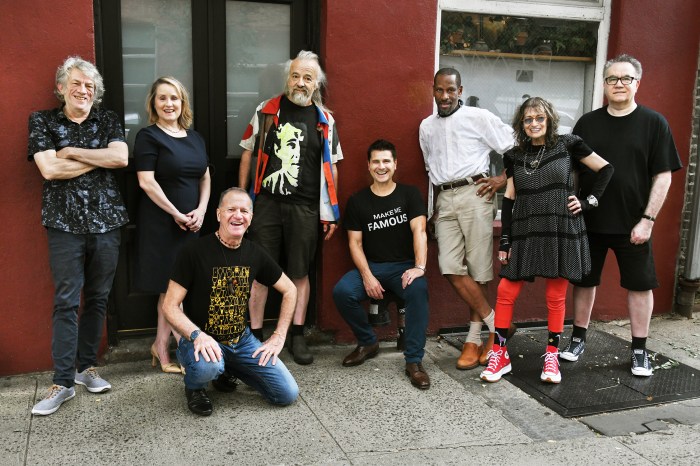By Steven Snyder
There are conflicting agendas in “A Scanner Darkly,” which wants to be a film both about the intruding, invasive omnipresence of the government, and the struggles of those who find themselves addicted to life-altering drugs.
Both themes are told through the eyes of a single man (Keanu Reeve). By day, he is Fred, a drug enforcement agent who pours over footage from security cameras and tries his best to break up all those drug rings run by “scum” on the streets. But by night he is Bob, an emerging drug addict who wastes away the hours with his two stoner friends, Barris (Robert Downey Jr.) and Luckman (Woody Harrelson) – all three losing their grip on reality.
Based on a Philip K. Dick novel, the story is set in an Orange County suburb in the near future where, as one character explains, a new super drug has divided humanity into two camps: Those who are addicted to Substance D, and those who have never tried it. And as Bob falls in love with Donna (Winona Ryder), she introduces him to the little red pills that will soon come to define his existence.
As Substance D slowly takes hold of Bob’s life, the quality of Fred’s work starts to slip. His bosses notice his deteriorating mental state and send him to be evaluated by government doctors. In an ironic twist, Fred the agent is restricted to desk duty and ordered to monitor Bob the junkie through hidden security cameras. Yes, thanks to a state-of-the-art uniform, which distorts voices, cycles endlessly through a catalogue of faces and is designed to keep agents from knowing their colleague’s true identities, Fred has been ordered to monitor… himself.
This is the film’s most potent point – that with an omnipresent police state, everyone is watching everyone, and the identity of the watchers dissolves into anonymity. No one is responsible; no one is to blame.
The theme is enhanced by director Richard Linklater (“Waking Life,” “Before Sunset”) who again turns to a fascinating animation technique in which live-action is drawn over by computer animation, helping Fred’s futuristic work suit exist only as a series of flashing faces. It’s an effect that magnifies the film’s hallucinogenic drug trips and helps Linklater to create a landscape that is constantly floating and drifting.
As a story about Bob/Fred, and his friends, “Scanner” is a compelling creation. The trio has a strong, funny sense of chemistry, and as Substance D comes to divide them – in ways both comic and tragic – some powerful messages start to make their way into this seemingly-light hearted affair.
It’s only in the end, when the bolder comments about government conspiracies, betrayals and back-stabbings enter the equation, that this story of personal agony is uprooted and lost in the commotion. The awkward, but unmistakable, shift starts in a diner, during a conversation between two government agents. Only a few scenes later, it leads the story to an unlikely cornfield where the film delivers what it considers to be a startling revelation about the government-run Substance D treatment center – even though it’s a surprise we’ve anticipated for the last hour.
It’s rare when a film’s demise can be pinpointed so precisely, but such is the case with “A Scanner Darkly,” and so many of the films based on Philip K. Dick novels. From “Total Recall” to “Minority Report,” Dick’s material always juggled the political with the personal – a balance that has never translated smoothly to the silver screen.
And as this focus on characters has been interrupted by larger dramas about government and technology, the power of Dick’s stories has been diluted. What’s been forgotten by so many movie directors is that to make an audience truly care about oppression, you must first help them see the struggle through the eyes of the oppressed.





































